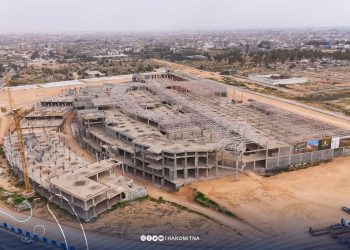By Jamie Prentis.
Tunis, 6 July 2017:
In what may be a sign of the way Libya heading in terms of decentralisation, Zliten municipal council has issued a call to local and foreign businesses to invest in a raft of projects in the municipality. These include housing both for local residents and foreign workers; industrial zones; hotels and beachside tourist resorts; commercial zones, markets and shops; slaughterhouses; and facilities to support recycling efforts.
A statement from Zliten municipality quotes the town’s Committee for Economic Development, Investment Promotion and Privatisation headed by the town’s mayor, Muftah Hamadi, suggesting that investors may be given state-owned land for the projects.
Potential investors are called on to contact the committee.
The news follows an announcement that Zliten is in talks with an Italian consortium to build a power station and water desalination unit for the town. The €289-million power station and €71-million desalination unit are said to be funded by investors based abroad.
There have been growing predictions that the future for Libya is cantonisation, like Switzerland, with local communities having maximum control of affairs – and being funded to do so – and central government limited to areas such defence and oil. The Zliten move, with the municipality evidently giving up on state support for its development, looks distinctly like cantonisation in action. But it is not the only municipality doing so. Others – notably central Tripoli, Beida and Misrata – have also by default been taking on the role of local development authority, raising funds for projects that previously would have been considered the government’s responsibility.







